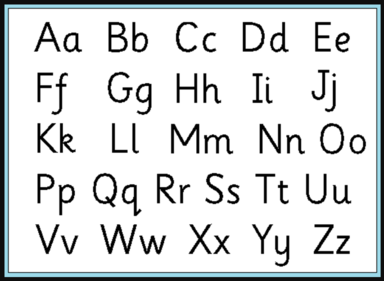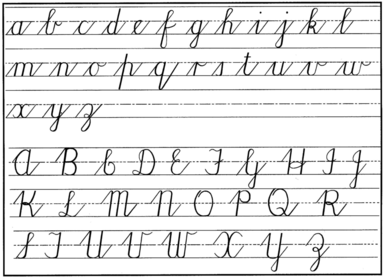Writing Subject Overview
|
Long Term Memory |
To be able to write fluently and for a range of purposes, children need to write regularly. Our curriculum is designed so that previous learning is recapped, revisited and consolidated and built on as the child moves through the school thus embedding their writing skills into their LTM. |
|
Real Life Relevance |
We want our children to see the real life relevance of writing; to understand the importance of writing in their everyday life and how it is used by both children and adults. It is important to expose the children to a wide range of writing that they can relate to, see the relevance of and use in the future. |
|
Enquiry-Based Learning |
We encourage our children to ask questions when writing. Who is the writing aimed at? What is its purpose? Is the vocabulary selected appropriate for purpose and audience? Can it be improved? Have I spelt key words correctly? |
Intent
We want children at Clover Hill to:
- write easily and fluently for a range of purposes
- develop the habit of writing widely and often, for pleasure and information
- acquire a wide vocabulary
- appreciate our rich and varied heritage
- elaborate and explain clearly their ideas to others
The programmes of study for writing are split into two components:
- transcription (spelling and handwriting)
- composition (articulating ideas and structuring them in speech and writing)
It is essential that our teaching develops pupils’ competence in these two areas. In addition, pupils should be taught how to plan, revise and evaluate their writing.
Effective transcription: we aim to teach pupils to spell quickly and accurately through knowing the relationship between sounds and letters (phonics), understanding the morphology (word structure) and orthography (spelling structure) of words.
Effective composition: our writing curriculum aims to teach pupils how to form, articulate and communicate ideas, organising them coherently for a reader. Pupils must develop their vocabulary and grammar and have an awareness of audience, purpose and context.
Spelling, Punctuation, Grammar and Vocabulary
Teachers at Clover Hill use the statutory appendices to support and structure their teaching of spelling, vocabulary, grammar and punctuation.
We aim to provide opportunities for pupils to enhance their vocabulary from reading and writing. As vocabulary increases, teachers develop pupils’ understanding of the relationships between words, understand nuances in meaning and understanding of and ability to use figurative language. Pupils are taught how to work out and clarify the meanings of unknown words and words with more than one meaning.
Pupils are taught how to control their speaking and writing consciously and to use Standard English.
Implementation
How is the writing curriculum organised?
Teachers have organised their writing curriculum to ensure children have opportunities to revisit, practise and repeat learning which is key to deep understanding and having a mastery of skills. Teachers look for links across subjects to help deliver the writing curriculum effectively in a way that will engage the children and stimulate interest.
Writing is taught through discrete daily English (incorporating reading, writing, grammar, punctuation and spelling) lessons, daily Reading Workshop sessions, daily VCOP activities, weekly spelling sessions and weekly discrete grammar and punctuation lessons (UKS2).
Teachers are expected to produce an MTP which gives a clear overview of the genre being taught each week and the texts used. An MTP for spelling, grammar and punctuation is also written.
Children are given specific SC when writing a particular genre but also have generic SC (appropriate for each year group) that we expect to see across all pieces of work in all subjects.
Peer/self-assessment using SC has proved to be key to developing confident writers (across all subjects) in UKS2. This is currently being introduced across the lower classes.
Impact
Our writing curriculum is organised clearly, so each teacher knows exactly what is expected of their year group. Skills are taught, they are practised, and they are repeated and revisited. This enables our children to develop deep understanding so they can use and apply skills taught in Literacy across all subjects at the same high standard as they do in Literacy.
Standards in reading, writing, spelling, grammar and punctuation are above the national in both KS1 and KS2.
How do we evaluate the effectiveness of our writing curriculum?
There is careful monitoring of teaching and learning through planning and assessment scrutiny, lesson observations, work scrutiny and through talking to the children within lessons. This helps the subject leader to evaluate writing effectively.
The strengths and highlights of writing are evaluated at the end of the Summer term which is reported to governors. From this evaluation, the new school improvement plan for English is written with clear aims as to what could be improved or developed. The action plan has clear time frames, accountability and SC and is monitored regularly to see what progress is being made.
A questionnaire for children and parents to complete is sent out at the end of the Summer term to highlight their thoughts on the strengths of writing and areas they feel could be improved. This also feeds into the action plan.
Data is analysed each term from teacher assessment across school to see where our strengths are or if there are any particular areas that could be improved. Support/training or resources is offered if needed.
Individual pupils who are not making as much progress as their peers are monitored closely to ensure intervention strategies are put in place that actually make a difference.
Does the writing curriculum meet the needs of all the learners in our school?
Progress and achievement of all learners is tracked, and the curriculum is personalised when required. Children with an EHCP have specific targets which are monitored and evaluated each term. Planning/work scrutiny shows differentiation is evident throughout the school.
What are the curriculum strengths in writing?
– KS1 and KS2 results are above average in writing and SPAG both at the expected level and greater depth
– high quality writing across all subjects in all classes
– use of peer/self-assessment
– high quality speaking and listening delivered through parent assemblies
– good use of generic SC
– visitors/ events in school – authors, writing competitions (Rotary club), school magazine
SEND/Inclusion
All provision for pupils with SEND is in line with the school’s SEND Policy.
Equal Opportunities
At Clover Hill Primary School, the curriculum for English will develop enjoyment of and commitment to stimulating the best possible progress and the highest attainment for all our pupils irrespective of social background, culture, race, gender, differences in ability and disabilities. All of our pupils have a secured entitlement to participate in the English Curriculum and our teaching approaches ensure the avoidance of stereotyping when planning work or organising groups. All the teaching staff agree that when using reference materials, they should reflect social and cultural diversity and provide positive images of race, gender and disability.
English Curriculum Map October 2022




